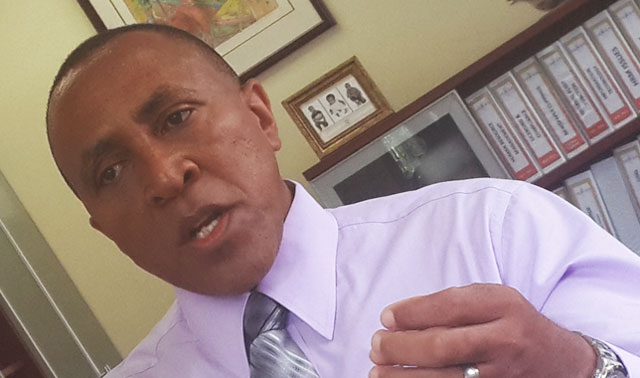
A showdown between Telkom and its regulator, the Independent Communications Authority of South Africa (Icasa), may be on the cards over local-loop unbundling (LLU), with newly appointed Icasa CEO Pakamile Pongwana warning that unbundling may be necessary to promote competition. Telkom is vehemently opposed to LLU.
Pongwana says that because the market has been liberalised — thanks to the lawsuit brought by Altech last decade against former communications minister Ivy Mastsepe-Casaburri in which it successfully challenged government’s policy of “managed liberalisation” — there are a “huge number of players that don’t have access to one form or other of infrastructure to provide services”.
LLU involves cracking open Telkom’s so-called “last mile” copper cable infrastructure into homes and businesses so that Internet service providers and other telecommunications companies can provide services directly to end users in some or other form.
Pongwana says that if LLU is deemed necessary to promoting competition, then “so be it, we have to”.
His comments come just weeks after Telkom fired a shot over Icasa’s bow, warning that if the regulator attempted to unbundle the local loop, it might have no choice but to raise its prices in response.
Telkom warned in a submission on draft LLU regulations drawn up by Icasa that imposing the regulatory intervention would benefit only a small minority of wealthy customers and businesses in urban areas to the detriment of most South Africans. It warned that LLU was a policy introduced in the mid-1990s in North America and Western Europe and had no place in South Africa’s telecoms landscape today.
“We are also rolling out a next-generation network to bring advanced, high-speed telecoms services to South Africa [and] intend to invest over R10bn in this network over the next two to three years,” it said. “LLU would directly threaten [this network’s] financial viability [and] would also undermine investment incentives for the entire industry.”
LLU, it warned, would allow competitors to cherry-pick the most profitable fixed-line customers. “The only South Africans who LLU is going to benefit are therefore businesses and high-income households in urban areas with a fixed line. This will happen at the expense of the middle and lower income households, particularly those in rural and peri-urban areas in South Africa.”
In response to a question about Telkom’s strong opposition to LLU and how Icasa might deal with it, Pongwana says: “My view is it is Icasa that is regulating, not Telkom. The reality is that Telkom has been fighting LLU for years. LLU might have to happen anyway, if they fight it or not. We might just have to say if they fight it, fine.”
He suggests Icasa is prepared to defend itself in court if challenged. But the authority must also satisfy itself that LLU is an appropriate intervention. “It’s a very old concept, and the question we have to ask, if we do it on those old grounds, is will it really have the desired effect? As long as it does that, there’s no problem, but if it doesn’t, we also have a problem.”
He says an impact assessment may be necessary to determine the most appropriate way of addressing LLU. — (c) 2013 NewsCentral Media




